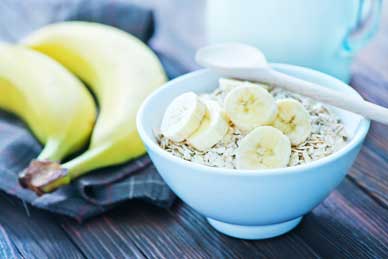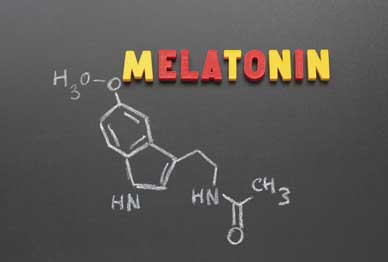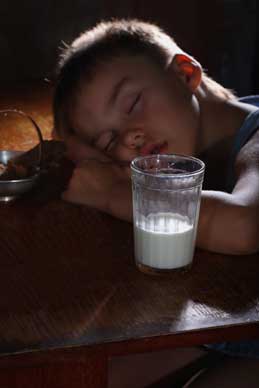Having trouble falling or staying asleep? The answer could lie in your kitchen. Foods that help you sleep contain sleep-promoting nutrients that can induce a natural, restful nights’ sleep.
If a survey were to be done asking individuals what they would like to do more of in a typical day, sleep would likely be one of the top answers. For various reasons, many of us lie awake in bed and have the most difficult time falling and staying asleep.
Experts have suggested that when this occurs, we should turn to food as a solution. The nutrients and phytochemicals in certain foods can play the same role in our body as sleeping medications and supplements when the right foods are chosen.
Exploring Foods That Help You Sleep
Foods that help you sleep at night have the ability to stimulate the production and release of certain sleep-promoting brain chemicals. Also, if an underlying condition such as muscle cramps interrupts your sleep, these foods may provide relief of those symptoms as well. To get a better night’s sleep, consider experimenting with these great nighttime snacks.
Pumpkin Seeds
Pumpkin seeds are a great source of tryptophan, an essential amino acid. Our bodies convert tryptophan to melatonin during a four-step reaction involving serotonin, a mood-enhancing neurotransmitter. Melatonin is a natural hormone released by the pineal gland that directly promotes sleep. It is commonly used as a dietary supplement and sleep aid.
Almonds
Almonds or almond butter can make a great snack before bedtime. They are a rich source of iron, calcium, zinc, potassium, magnesium and B vitamins. These nutrients offer many benefits to the body as they relax muscles, help regulate brain activity, and increase levels of melatonin. Almonds are also a source of 14 amino acids, one of which is tryptophan.
Cherries
Tart cherries are one of the only natural food sources that can supply our bodies with melatonin, the natural sleep-promoting hormone. When cherries are out of season, you can supplement with a glass of cherry juice or some dried cherries. Researchers who have linked cherries with melatonin suggest eating them one hour before bedtime. Other natural sources of melatonin include grapes and walnuts.
Bananas
 Bananas are among the foods that help you sleep. They are a good source of potassium and magnesium, both of which are natural muscle relaxants. They also contain tryptophan, which is converted in the brain to the sleep hormone melatonin.
Bananas are among the foods that help you sleep. They are a good source of potassium and magnesium, both of which are natural muscle relaxants. They also contain tryptophan, which is converted in the brain to the sleep hormone melatonin.
Oatmeal
Oatmeal is a complex carbohydrate that doesn’t cause the sugar spikes seen with other carbohydrates. It is a filling food that is easily digestible, allowing your body to rest easy at night. It is also a great source of calcium, potassium and magnesium, nutrients that promote relaxation of the body.
Cheese & Crackers
The carbohydrates in crackers help you fall asleep faster. After consuming carbohydrates, the body is triggered to produce insulin. Along with insulin, the sleep-promoting brain chemicals serotonin and tryptophan are released. The protein in the cheese is also an excellent source of tryptophan.
Toast with Peanut Butter
Toast provides the same carbohydrate benefit of crackers to help you sleep, plus peanut butter is rich in tryptophan. With this combination, you will get the benefit of tryptophan and the benefit of the carbohydrates, which helps tryptophan reach the brain easier.
Cereal & Milk
This is a great bedtime snack combination. Milk is a source of sleep-promoting tryptophan. According to the National Sleep Foundation, the carbohydrates in the cereal make tryptophan more available to the brain. Also, as previously mentioned, after eating carbohydrates the sleep-promoting brain chemicals serotonin and tryptophan are triggered along with insulin.
Pineapple
 Researchers have found that certain foods can boost our natural levels of the sleep-promoting hormone melatonin. After eating pineapples, the levels of a melatonin marker were increased by 266 percent. Bananas also contributed to a rise of 180 percent and those who ate oranges had a rise of 47 percent.
Researchers have found that certain foods can boost our natural levels of the sleep-promoting hormone melatonin. After eating pineapples, the levels of a melatonin marker were increased by 266 percent. Bananas also contributed to a rise of 180 percent and those who ate oranges had a rise of 47 percent.
Popcorn
The popcorn works in a manner similar to cheese and crackers. If sprinkled with grated parmesan cheese, this snack can give your body a boost of tryptophan and the carbohydrates it needs to help the brain absorb it more readily.

